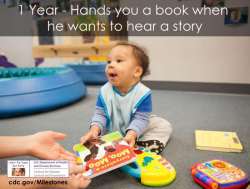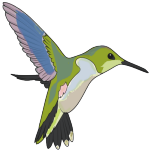Speech and Language Milestones for Babies and Children
Communication milestones for children - why they are important.

"Milestones are a road map to the awesome processes of maturation and learning that occur in those early formative years of life," according to Dr. Ed Hall. He explains that langauge milestones provide information about the normalcy of a child's development. Milestones can also provide a window of opportunity for parents and educators to optimize the development of language and cognition. Most importantly to parents of children who are at risk for speech or language disorders, familiarity with developmental speech and language milestones can help you determine whether it is time to seek professional guidance.
Typically, children learn the rudiments of language by age 3 and master it almost completely by age 10. Beginning with babbling, babies typically use single words by one year. As a general rule of thumb, children usually can speak in phrases using the number of words as their age, up to age five. For example, a two year old child can typically use two word phases. Most grammar is learned by age 5, with refinement continuing to age 10. However, even up to age 8 children are still developing the physical skills necessary to create all the sounds in words.
This variation in timing of development in speech and language makes it more difficult to determine if your child truly has a problem in this area. If you have concerns about your child's speech, please take this seriously and ask for an evaluation by your pediatrician and a qualified speech-language pathologist. There are also several excellent books available now for parents on speech issues for children, that provide helpful advice to determine if your child needs assistance. I highly recommend these books to any parent whose child is at risk for speech or language delays.
